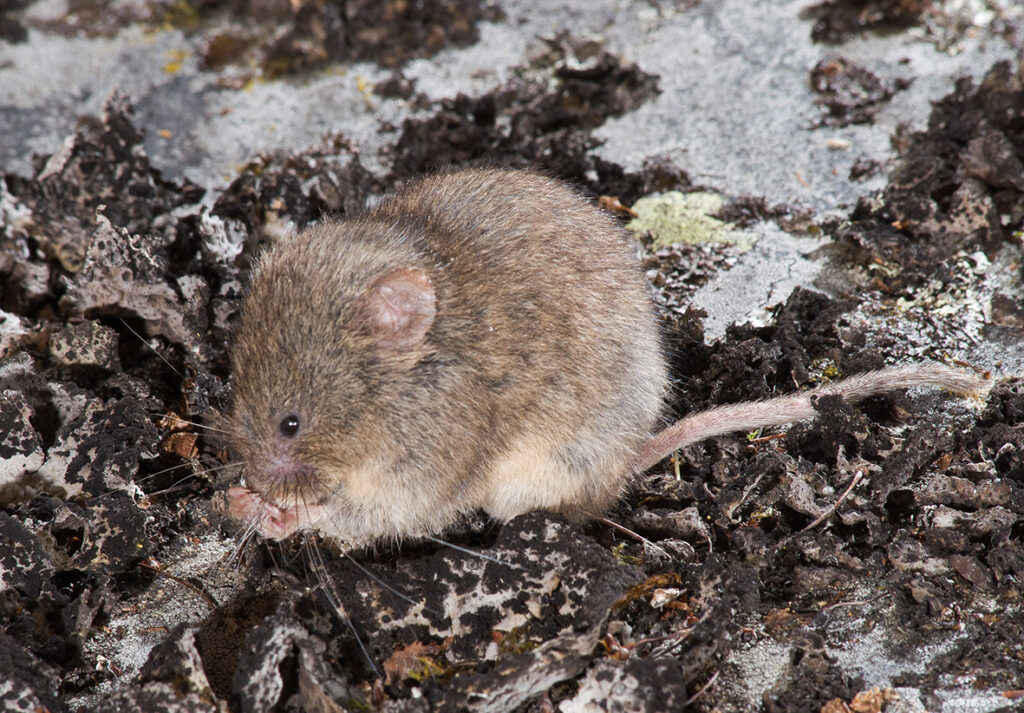
Recently, the revised Portuguese Mammal Red Data Book (2023) documented the evaluation of 16 new species in the country, belonging to four taxonomic groups: Eulipotyphla (1), Chiroptera (4), Rodentia (2) and Cetacea (9). These species were selected based on the following criteria: (i) newly recorded species, (ii) newly designated taxonomic species, and (iii) newly occasional species (Table 1). For species assessment, the International Union for Conservation of Nature (IUCN) guidelines were followed, particularly regarding their area of occupancy, extent of occurrence and fragmentation, population size, and rate of decline. As a result, the majority was considered of conservation concern: two non-volant small mammals and one bat species were designated as Vulnerable (VU), requiring ongoing monitoring; one rodent and three cetaceans were assigned to the Data Deficient (DD) category due to insufficient information; and a single bat species was classified as Least Concern (LC) due to the high abundance of local populations. The occasional species, all cetaceans, were not assigned a category in the Red Data Book (NA – Not Applicable).
For small mammals and bats, alterations to natural systems and climate change emerged as the most significant threats, while for cetaceans, human activities such as fishing, commercial shipping, and tourism were identified as the primary risks to their survival. Periodic re-evaluation of species’ conservation status is recommended to help define strategic orientations for implementing conservation measures, with a particular focus on species with limited distributions or insufficiently documented information.
Maria da Luz Mathias (coordinator of the project, mlmathias@ciencias.ulisboa.pt)
Centre for Ecology and Marine Studies, Faculty of Science of Lisbon.
More information about the Portuguese Red Book can be found here: Red Data Book of Portuguese Mammals (in Portuguese).
| Order / Family | Species | IUCN category |
|---|---|---|
| Species recorded for the first time in the country | ||
| Chiroptera/Vespertilionidae | Eptesicus isabellinus | LC |
| Chiroptera/Vespertilionidae | Myotis crypticus | NE |
| Chiroptera/Vespertilionidae | Myotis alcathoe | NE |
| Rodentia/Cricetidae | Chionomys nivalis | DD |
| Cetacea/Delphinidae | Stenella frontalis | DD |
| Cetacea/Ziphiidae | Mesoplodon bidens | DD |
| Cetacea/Ziphiidae | Mesoplodon mirus | DD |
| Species that have undergone a change in their taxonomy | ||
| Eulipotyphla/Soricidae | Neomys anomalus | VU |
| Chiroptera/Vespertilionidae | Myotis escalerai | VU |
| Rodentia/Cricetidae | Microtus rozianus | VU |
| Vagrant species | ||
| Cetacea/Balaenopteridae | Balaenoptera edeni | NA |
| Cetacea/Delphinidae | Globicephala macrorhynchus | NA |
| Cetacea/Delphinidae | Lagenodelphis hosei | NA |
| Cetacea/Delphinidae | Lagenorhynchus acutus | NA |
| Cetacea/Delphinidae | Lagenorhynchus albirostris | NA |
| Cetacea/Physeteridae | Kogia sima | NA |






